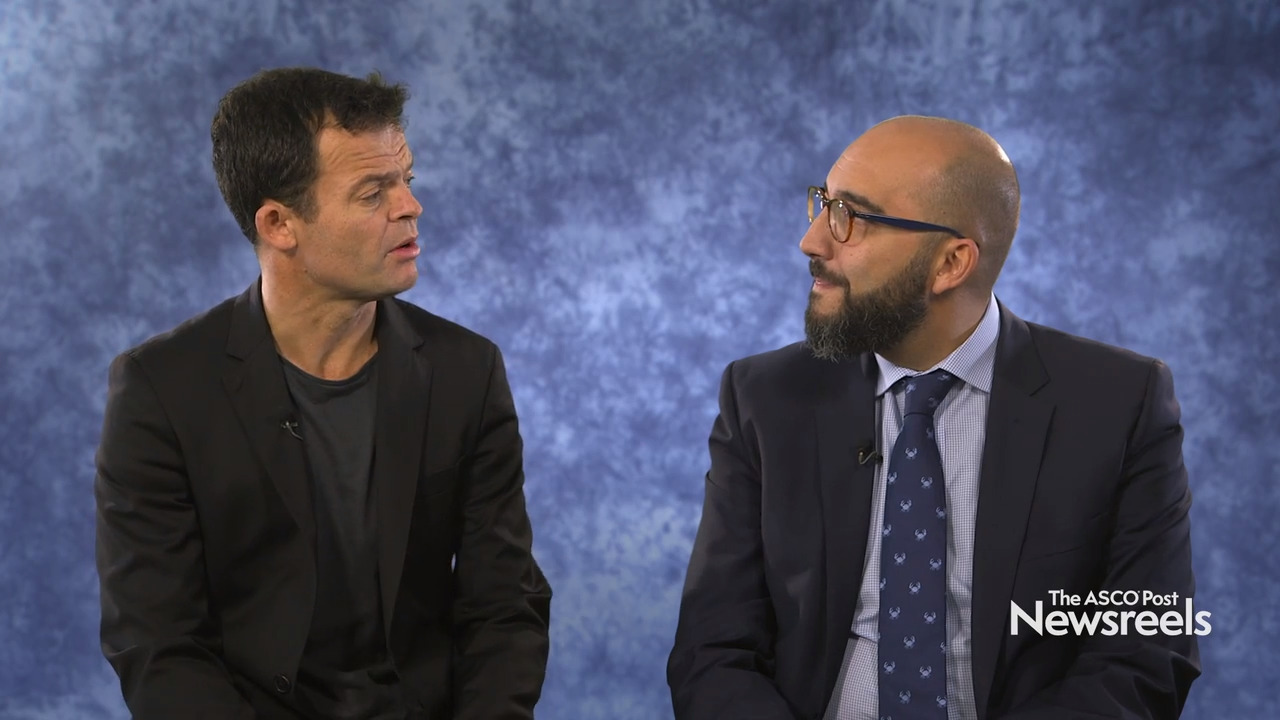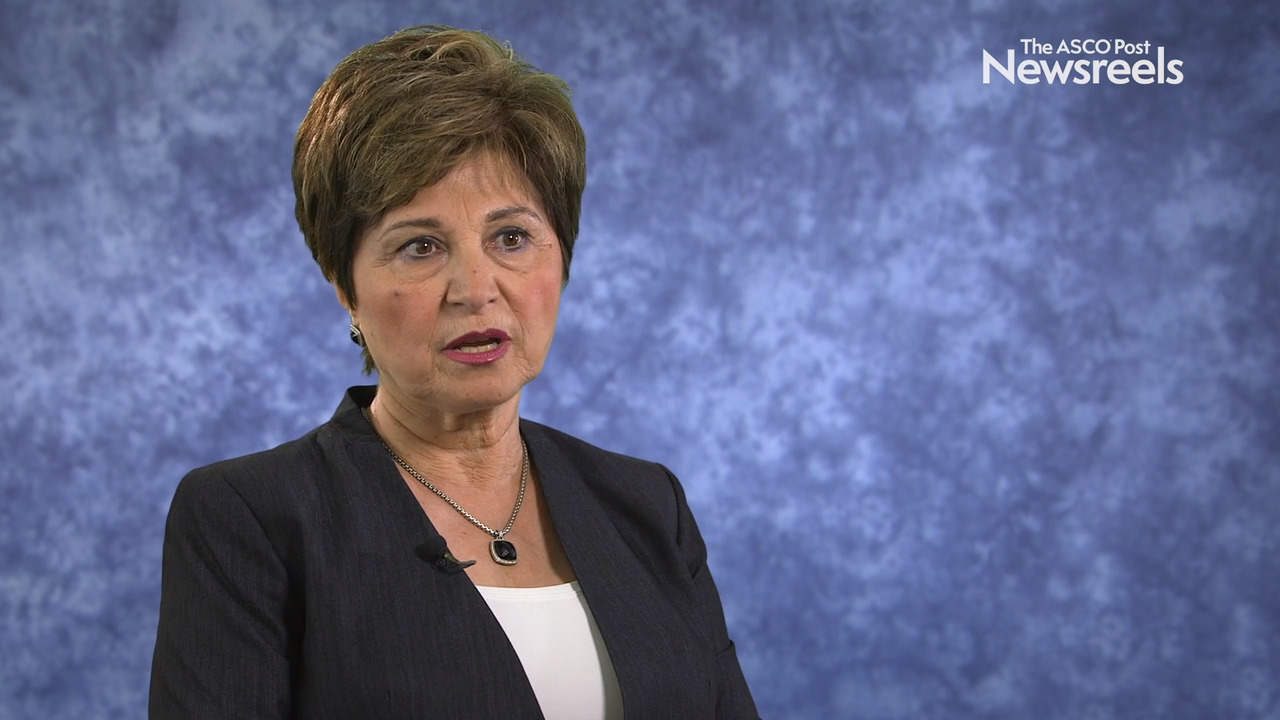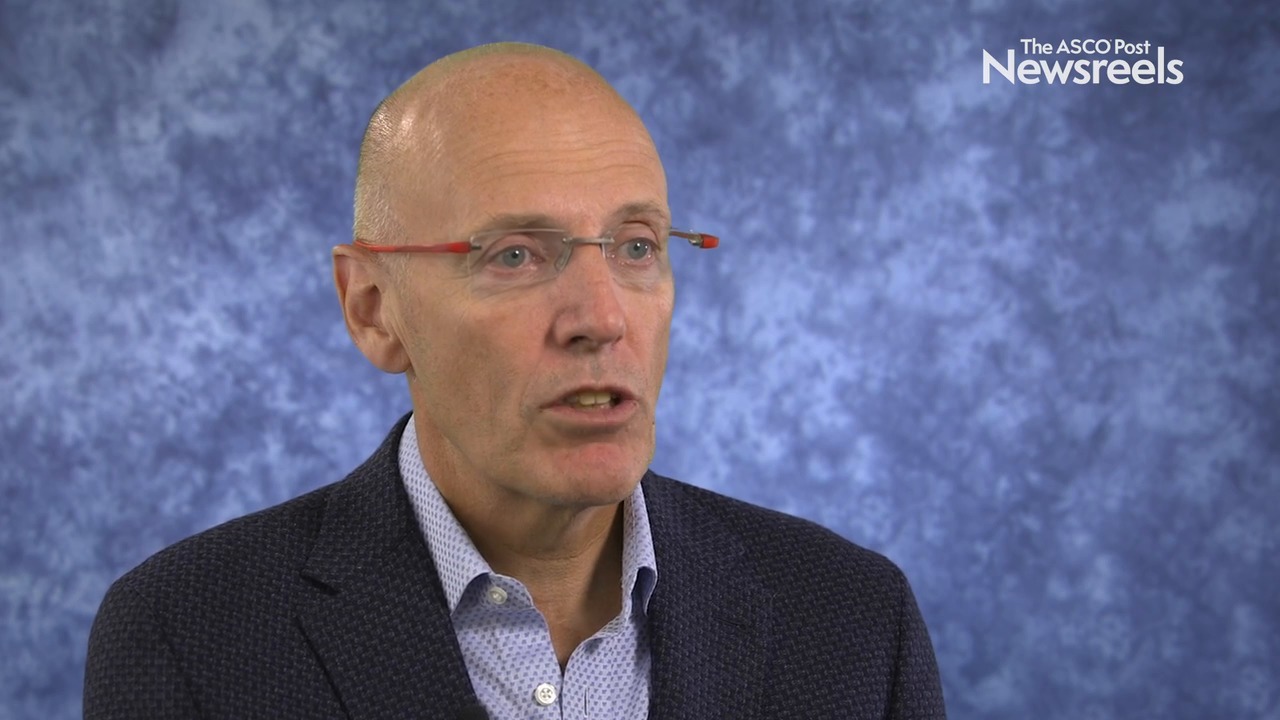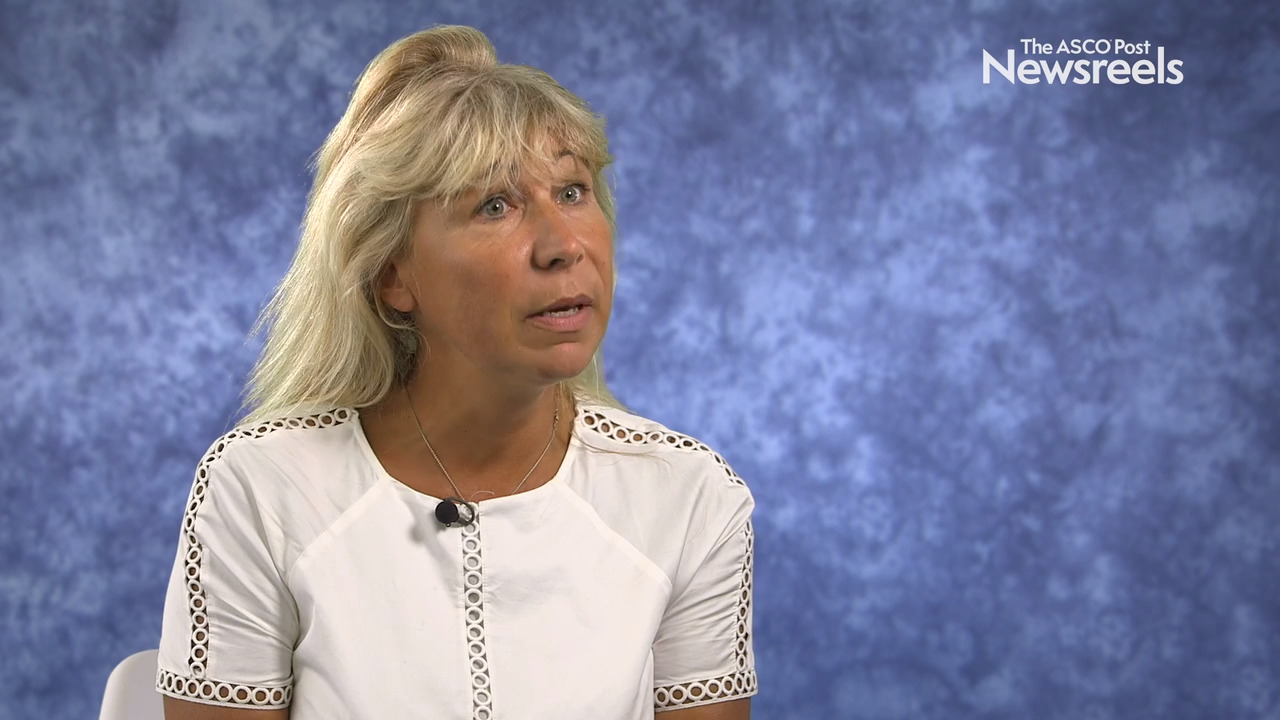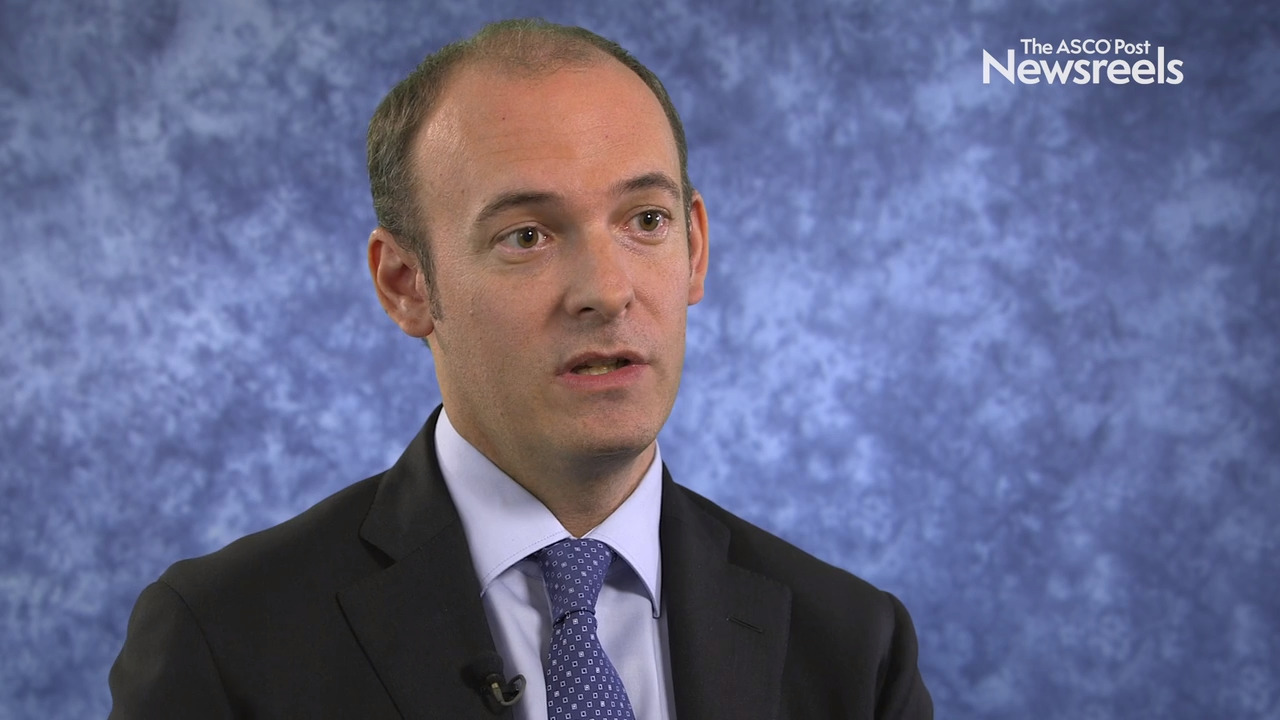Angela Lamarca, MD, PhD, on Liver Metastases From Intrahepatic Cholangiocarcinoma
ESMO 2019 Congress
Angela Lamarca, MD, PhD, of the Christie NHS Foundation Trust, discusses findings from a study that showed new staging criteria should be considered for patients diagnosed with liver metastases in the absence of other extrahepatic tumor spread (Abstract 731P).
Thomas Powles, MD, PhD, of Queen Mary University of London, and Enrique Grande, MD, PhD, of MD Anderson Cancer Center, Madrid, discuss findings of the phase III IMvigor130 trial on the efficacy and safety of atezolizumab as monotherapy or combined with platinum-based chemotherapy vs placebo plus platinum-based chemotherapy in previously untreated locally advanced or metastatic urothelial carcinoma (Abstract LBA14).
Maha H.A. Hussain, MD, of Northwestern University Robert H. Lurie Comprehensive Cancer Center, discusses the phase III PROfound trial results on the efficacy of olaparib in men with metastatic castration-resistant prostate cancer whose tumors harbor alterations in DNA damage response genes and who had disease progression on prior hormone therapy (Abstract LBA12).
The ASCO Post Staff
Nicholas D. James, PhD, MBBS, of University Hospitals Birmingham NHS Trust, discusses the efficacy of prostate radiotherapy plus androgen-deprivation therapy with or without docetaxel in patients with prostate cancer with only lymph node metastases or less than four bone metastases (Abstract 844O).
Isabelle Ray-Coquard, MD, PhD, on Ovarian Cancer: Olaparib Plus Bevacizumab
Isabelle Laure Ray-Coquard, MD, PhD, of the Centre Leon Bérard, discusses phase III study findings in patients with newly diagnosed, advanced ovarian cancer who received olaparib plus first-line bevacizumab maintenance treatment. Compared with placebo plus bevacizumab, olaparib improved progression-free survival, with the greatest benefit in women with BRCA mutations and positive homologous recombination deficiency status (Abstract LBA2).
Aleix Prat, MD, PhD, of Hospital Clinic de Barcelona, discusses the findings of a meta-analysis showing that the HER2-E subtype may predict pathologic complete response beyond hormone receptor status in HER2-positive early breast cancer (Abstract 248P).
